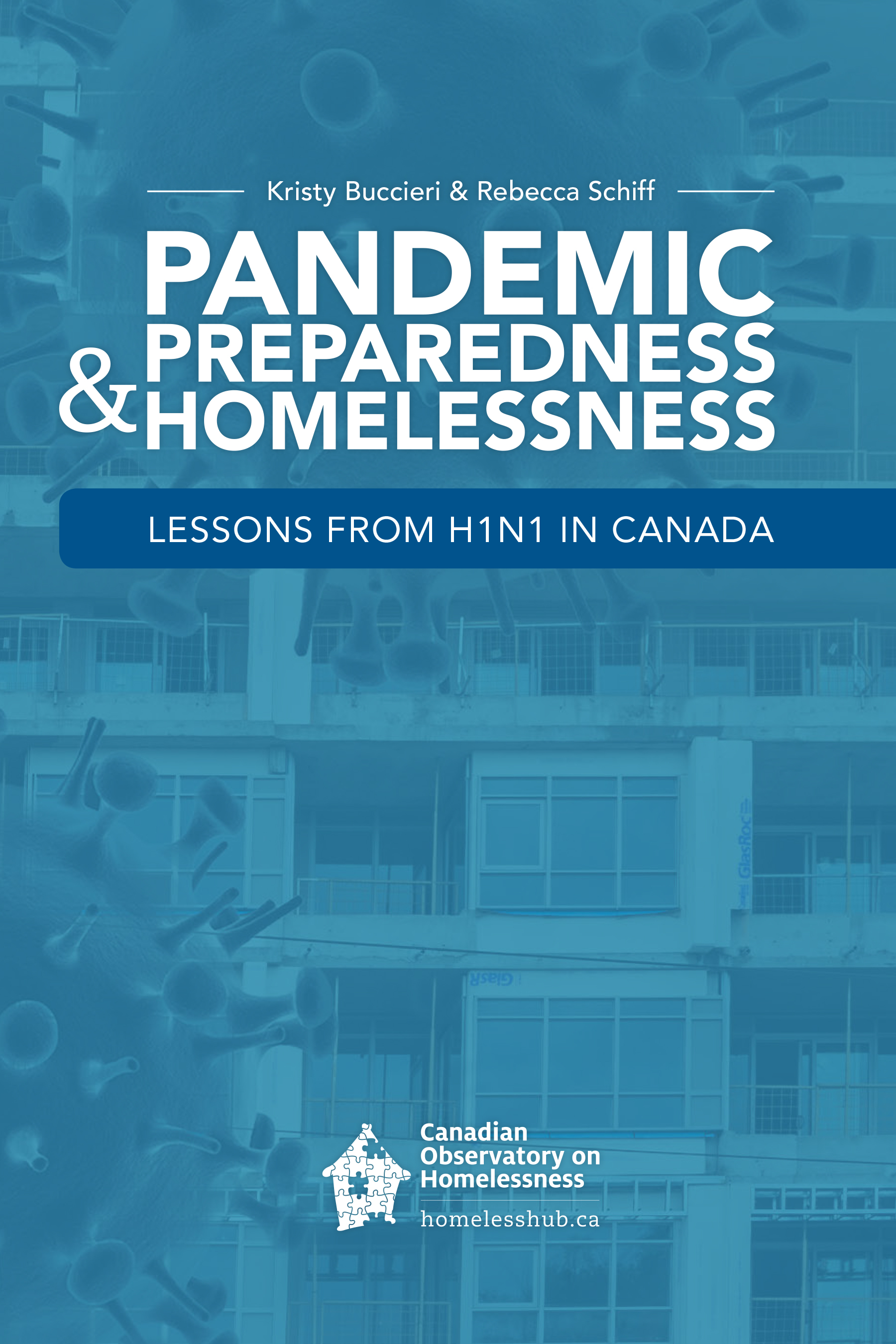The new book, "Pandemic Preparedness and Homelessness: Lessons from H1N1 in Canada" looks at responses to the recent outbreak in four cities across the country. Below, the book's editors Kristy Buccieri and Rebecca Schiff discuss the importance of pandemic planning for individuals experiencing homelessness, the challenges involved, and why this book is an important read for policy-makers, service providers, and researchers.
KB: The H1N1 pandemic posed a threat to the health of all Canadians. As editors of the new book, Pandemic Preparedness and Homelessness: Lessons from H1N1 in Canada, we have compiled research findings on how four diverse cities responded to this threat within the context of homelessness. Why do you think homelessness requires its own strategic response to pandemic outbreaks? Could we not just extend mainstream approaches to individuals experiencing homelessness?
RS: Homelessness can cause many significant health problems and homeless people have difficulty accessing healthcare. Homelessness also precludes the ability to follow typical guidelines in the case of disease outbreaks. For example, it is difficult to stay isolated, get rest, and recover when you don’t have a home and are living in a crowded environment. The types of health problems, healthcare barriers, and living situations experienced by homeless people means that a different approach is needed. What types of responses do you think are needed? What could be changed to make pandemic planning more relevant to the needs of homeless individuals?
KB: You make an excellent point about homelessness acting as a potential barrier to accessing healthcare and hampering people's ability to recover. One thing that struck me in this research is the importance of community-centred approaches to reaching individuals experiencing homelessness. In many of the cities we worked with for this project, the Public Health departments made an effort to hold vaccine clinics in shelters and drop-in centres. This was one very effective approach that brought the vaccination rates of individuals experiencing homelessness up to the general population rates (significant because they are usually considerably lower). A clear message from this project is that preparedness works best when it meets people where they are. At the same time, though, we also found that we can't just prepare people for emergencies. We need to address the structural issues that create marginalization and vulnerabilities in the first place.
RS: It is very true that community – centred and client – centred approaches are critical to any work with people experiencing homelessness. The knowledge of people with lived experience of homelessness is necessary if we want to develop effective strategies to mitigate vulnerability and address health needs. You make an excellent point as well about the need to address structural issues that are the cause of poverty, homelessness, and marginalization. One of the difficult tasks is to determine how best to use our resources to address immediate needs (for shelter, food, health) while looking for and implementing long term solutions.
KB: Agreed, that challenge is one that came out clearly in the study as service providers have to navigate the urgency of immediate needs with the long-term possibilities of pandemics and emergency outbreaks. We conducted the research across a variety of sites - Calgary, Regina, Toronto, and Victoria - with some striking similarities in issues emerging across the sites. Although the cities have different sizes, compositions, and homelessness infrastructure systems, they each reported the need for more resources and support in their daily work as a foundation for pandemic preparedness. This book features chapters that look at these issues overall, as well as detailed case studies of each research site. Alongside ourselves, this project was a collaborative effort of different communities and researchers, including Stephen Gaetz, Bernadette Pauly, and Jeannette Waegemakers-Schiff. We all felt this book was a good way to share this research and the important findings that emerged. What do you think readers will get out of it?
RS: One of the benefits of this research was that it brought together researchers and community partners from diverse cities across the country which supported a broad assessment of the challenges faced and resources needed to support pandemic preparedness. This book brings together information not only about pandemic preparedness but also about more general challenges in homelessness service provision. Each chapter contributes some unique recommendations related to pandemic preparedness and considerations for addressing the health needs of homeless people. This book also examines the collective experience of these cities. This points to recommendations which might assist homelessness service providers and policy makers in their emergency and pandemic planning efforts.
KB: The book is fully open-access and now available through the Homeless Hub website.

